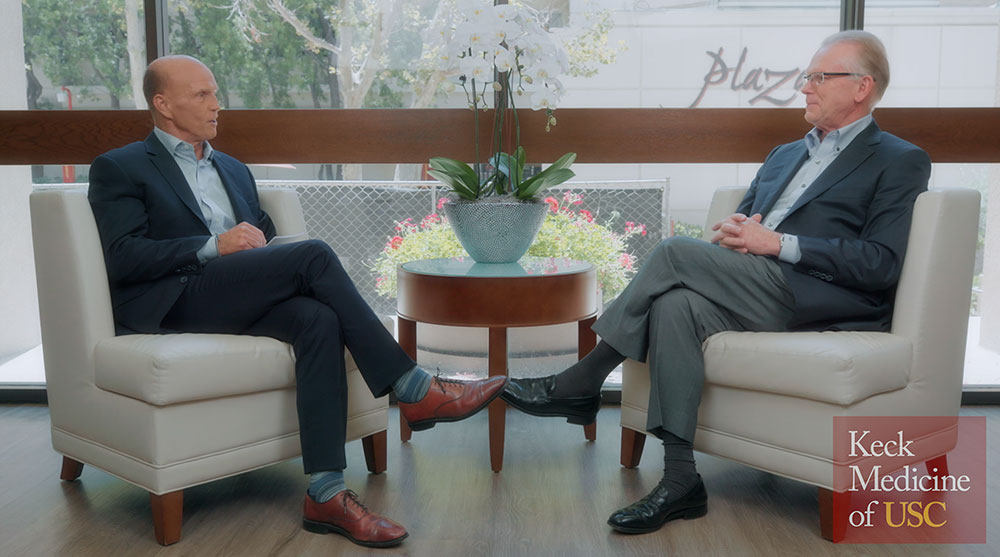
Rod Hanners, CEO of Keck Medicine of USC, talks with Dr. Vaughn Starnes about the vision for the next decade of heart care.
“Conversations with Rod” is a video series featuring Rod Hanners, CEO of Keck Medicine of USC, talking with our doctors about our innovative medical care and research. In this video, Hanners sat down with Dr. Vaughn Starnes, surgeon-in-chief at Keck Hospital of USC and USC Norris Comprehensive Cancer Center and founding executive director of the USC Cardiac and Vascular Institute, to discuss the future of cardiovascular care. Dr. Starnes is also the H. Russell Smith Foundation Chair for Stem Cell and Cardiovascular Thoracic Research and Chair and Distinguished Professor of Surgery at the Keck School of Medicine of USC. He is chief of cardiothoracic surgery and director of the Heart Institute at Children’s Hospital Los Angeles. Watch the full video below — or read excerpts from their conversation.
Interview Excerpts
What is your philosophy of care?
Vaughn Starnes, MD: It’s really about the patient and getting to know both the patient and their families. I also see children at Children’s Hospital Los Angeles. In my work there, it’s really about trying to understand a child’s needs, and then taking my skill set and using that to answer the questions about their health care.
USC Arcadia Hospital just joined USC Verdugo Hills Hospital as one of two community hospitals within Keck Medicine. What role do these community hospitals play in our specialized care?
VS: Keck Medicine now is not just a hospital. It’s a system. What we’re going to do is maximize that system to the benefit of the community. We’ll be establishing cardiovascular care at USC Arcadia Hospital. There we propose to do more straightforward cardiovascular care, coronary revascularization, valve care and, potentially, some aortic work.
Keck Medicine has become a regional referral center or what’s known as a quaternary center. So, the community hospitals allow us to make more room for that needed care and deliver quality care near people’s homes with the same trusted Keck Medicine academic surgeons.
What may be your vision for the next decade of heart care here at Keck Medicine?
We started out with an empty hospital, when I came in 1992. And now, we’ve grown a heart program that’s in the top 20 in the nation. We are experts in minimally invasive valve surgery, aortic endo-stenting and aortic care in general. I would like to say, and I really believe, there’s nothing you can call Keck Medicine about in a cardiovascular space that we can’t care for. That’s the reputation we have now.
So, my vision for the future is to build on what we’ve started. And I will use that word emphatically, we’ve just started. We’re going to build a cardiovascular heart hospital inside the Keck Hospital. It’s going to be able to bring in the latest technology that will continue to grow our innovative science here on this campus.
Topics
